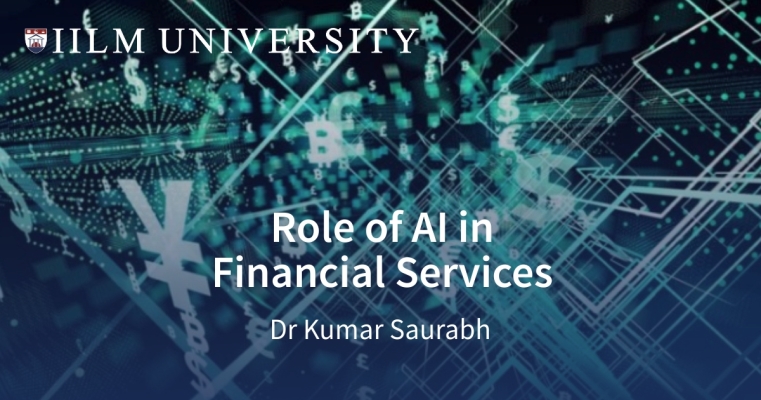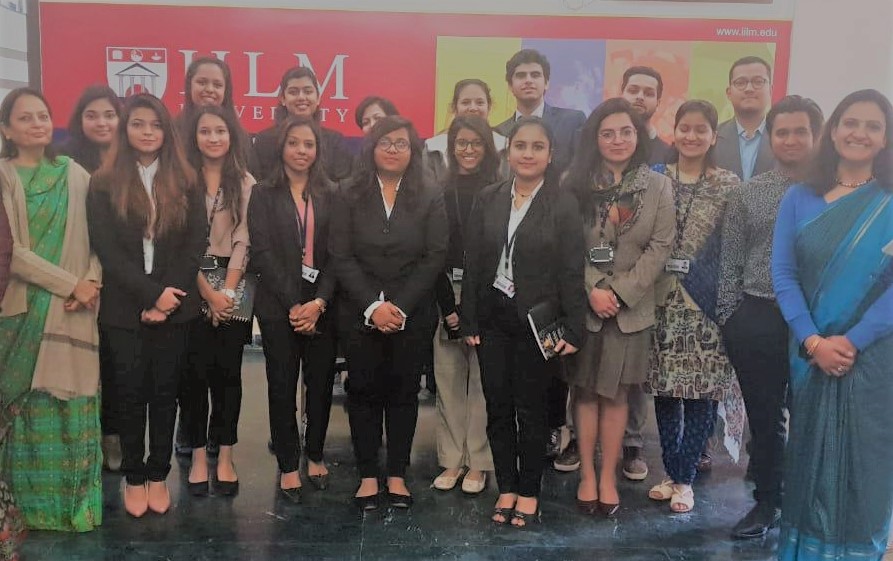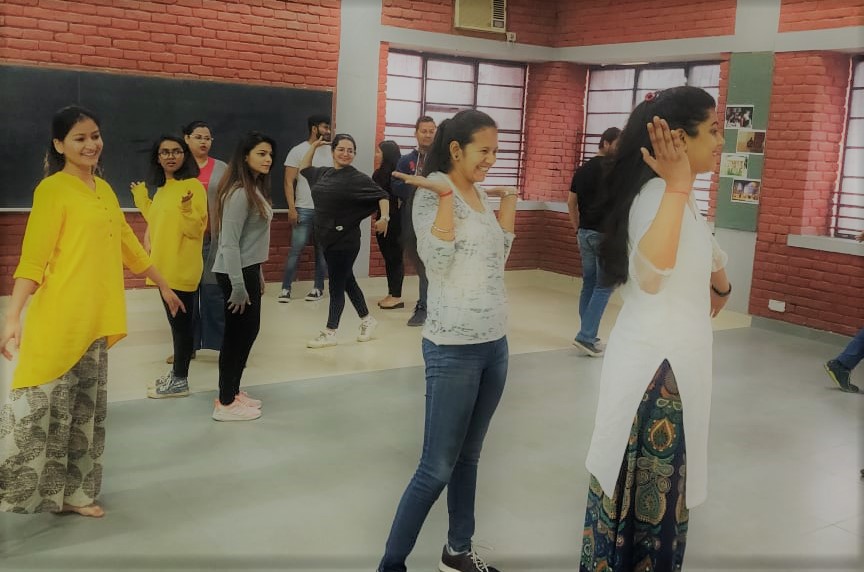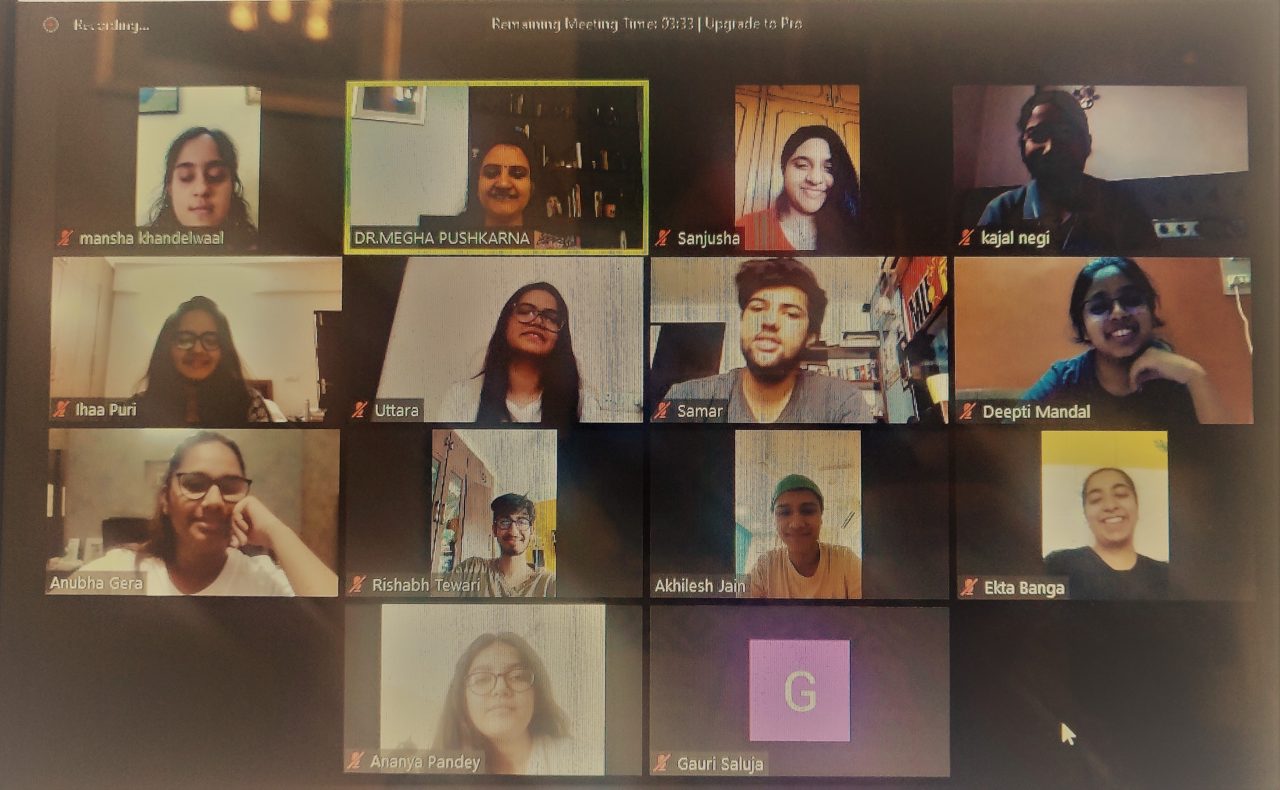I know those frowning faces with irksome stretched online classes or work from home, as they say it’s the new normal or ordinaire. What’s normal or what’s not, I am not here to infer that. Neither am I here to draw conclusions about who played the bad-boy and ignited our 2020 with full of remorseful endeavours. Neither shall I salt the wound of families who have been affected by the pandemic. We all know about it. And we all are waiting to surface our sorrows and joys above it; float above the virus massacre of 2020.
Then what must our dialogue entail…time to ponder!
Have you guys ever thought about why all of a sudden, it’s us? Us in the brink of an utmost apathy by our creators–the nature, the water, the air, the sky and above all the earth? Maybe yes some of us have, through fathomless research, readings; and maybe not! But my implication is not soul-searching but rather to pull our lives back exactly to the years gone by and re-think to relive it differently. Now how’s that possible? As we all are judicious beings, we believe in tangibility mostly. Money is time’s new definition and more the time, let’s pour some more money…isn’t it? Don’t worry, we all have our minds clocked and locked on our wellbeing… we create and think to create more often. In the midst of only creation of means to wellbeing, we lose most of it by the time we realize it.
Hence, let’s come back to my fundamental ask—Can we re-think or re-live our lives backwards? Scientifically we can’t as time is a factor that is linear…even if somebody builds or secretively has a time machine- we can’t redo our lives—as physicists might argue about paradoxes! On possessing a very unscientific, illogical mind, I’ll offer you my consolation of not being able to solve that paradox. But my dear smarties, we can certainly re-live our lives- in moments of our passions that we enjoy the most while executing- Meraki.
Meraki will guide you and your work (be it studies/profession/job/hobbies) in a time where everyone is busy tabulating the viral count across the globe. Somebody asked me if Meraki is a replicated version of Tiktok or yet another type of a PS4, I smiled back to them stating, ‘It’s my bad!’ So, if you guys are unsure of Meraki, I have already smirked at you all too. Since, I believe that I have induced in the right vocab in your dictionary now.
Now let’s see how this Meraki can help you evolve from this situation that is going to persist for some more months.
- Whenever you wake up- put Meraki into thankfulness for still being alive! Hurrah!
- While preparing morning tea/breakfast/helping your house-mate-involve meraki
- While relaxing, add observational task as your meraki
- While petting your bird or dog, look at them and pet them enough to utter meraki
- While cleaning your house-meraki can do a better job than most trained house helps
- While taking up your online courses, meraki might help you achieve an A plus
- While reading a book, it can turn you into an online book reviewer
- Just wondering if while reading this article, your meraki can make you like it 😉
There are too many mundane yet necessary tasks/activities that we do undesirably with great complaints. However, using the miracles of meraki, we can change our lives, we can relive ourselves in small yet ordinary tasks… what used to be a complaining, boring and uncool and unproductive hours of our lives yesterday could be our elated freedom in times of today.
Meraki is the spice we need to blend in our activities of today so as to relive those mundane moments. As the crisis has proven to us that life and its associated echoes are not old-fashioned—what’s uncool is the regular whines, the complaints and ultimately no life at all!
My focus is more on your well-being, your pustimarga and Meraki is the way forward.
Reach out to thank me! 😉
Note: Meraki is a Greek terminology that believes in putting your heart & soul into whatever task/work you do. I hope that helps! ☺
Nidra Naik
Novelist & Poet
Accenture
PGDM Batch 2004-06, IILM Lodhi Road











 At IILM University which is considered one of the best private universities for Psychology around Delhi/NCR, we teach critical thinking and communication skills along with other courses where we discuss how anger does not become an issue till you keep ignoring it. Reaching to the core of an internal conflict and addressing concerns is half battle won without inflicting pain to self or others.
At IILM University which is considered one of the best private universities for Psychology around Delhi/NCR, we teach critical thinking and communication skills along with other courses where we discuss how anger does not become an issue till you keep ignoring it. Reaching to the core of an internal conflict and addressing concerns is half battle won without inflicting pain to self or others.


